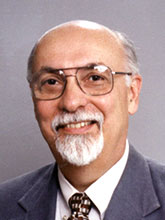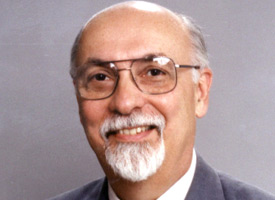With Dr. Bruce Hartung
There have been a number of responses to the January column on the use of Internet pornography (online here), including several that expanded the concern to Internet use in general. First, let’s address the use of Internet pornography by church workers. The writer’s comments are in italics and my responses are not.
The Clergy Call and Roster Committee (CCRC) of the Council of Presidents of the LCMS is grateful to you for offering such an excellent, well-articulated and helpful article. The CCRC requests that you provide information about the role of the church worker’s district president (DP) when addressing Internet pornography. DPs have developed guidelines to assist them in their supervision of ordained and commissioned church workers when their use of the Internet conflicts with the biblical standards of 1 Tim. 3:1-7 and Titus 1:6-9 for church workers. Would you be willing to provide information about the role of district presidents when LCMS church workers misuse the Internet?

Thanks for the positive feedback. In our LCMS system, roster status of professional church workers is under the purview and authority of the workers’ district presidents. It is a very good thing that as early as 2007, our district presidents fashioned guidelines to facilitate both inquiry into Internet use when there has been an allegation and support for the worker and his or her congregation/school to tackle this difficult and often addictive behavior. These guidelines or suggested courses of action form the basis of most of what follows.
It is the responsibility of the DP to investigate allegations and help the worker get appropriate help. Among the help that is indicated could be individual counseling, inpatient treatment, counseling for the spouse and children of the worker and marriage counseling, if indicated. Ongoing work with the congregation and school also may be necessary — absolutely so, if the misuse is public knowledge.
It is not necessarily so that a worker would go on a leave of absence or resign from his or her call. With appropriate boundaries in place and appropriate treatment ongoing, it is at times quite possible for a church worker to continue to provide ministry. However, if the Internet use is illegal (such as utilizing child pornography) or if the worker does not follow through on treatment or has been dishonest in his/her disclosure, removal from the call or even the roster is possible and, in the case of illegal activity, likely.
Congregations and schools, on the other hand, are encouraged to utilize Internet-blocking software on all their computers, establish an Internet-use policy for all workers that is signed by the workers and provide ongoing educational materials concerning Internet use and misuse.
From my perspective, it is important for all church workers to know that pornographic use is a major threat to their ministries at lots of different personal, familial, spiritual and legal levels. And, there is lots of help available. To go for help immediately is vital. Our DPs can play an important and helpful role in both care and supervision.
Now, on to a more general question about Internet use:
What do you do when it looks like your pastor is spending hours and hours on his computer? I guess the question really expands to the fact that our pastor spends a whole lot of time in his office in front of his computer screen and he is not very much out and about in the community or visiting members. Can he be in some way glued to his computer?
Talk directly with your pastor. Share your concerns. Do it in a context of wanting to be helpful as well as doing some reality-testing of what you think you observe. You are checking your perspective and also communicating a hope for the work of your pastor and the work of your whole congregation: community involvement and active engagement with building member relationships. This could be a really important discussion that could go to the heart of our activity as witnesses to the saving work of Jesus. Whatever you do, though, please do not make this a side conversation in some other context. Use direct conversation.
On the other hand, there is something that increasingly is being discussed and has been mentioned by several readers: Internet addiction. I’ll take that up in the next column.
The Rev. Bruce M. Hartung, Ph.D., is professor of Practical Theology at Concordia Seminary, St. Louis. He can be reached at hartungb@csl.edu.
